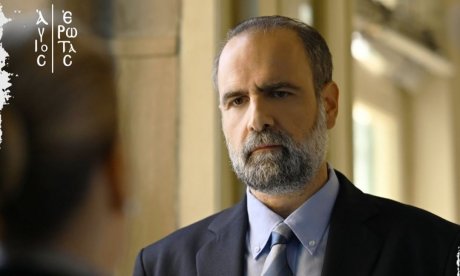Greece brought to standstill by 48-hour strike as Christine Lagarde demands immediate talks on debt
Greece’s powerful labour unions today began a 48-hour strike in response to government plans to “unleash a new tax raidon the working classes".

Tensions also increased between two of Greece's bailout monitors, the European Commission and the International Monetary Fund, as IMF chief Christine Lagarde demanded urgent talks on Greek debt relief.
In a letter to eurozone finance ministers, Ms Lagarde said that talks on "contingency" tax measures that could raise cash if Greece's finances disappointed were breaking down.
“For us to support Greece with a new IMF arrangement, it is essential that the financing and debt relief from Greece’s European partners are based on fiscal targets that are realistic because they are supported by credible measures to reach them," she wrote in the letter seen by the FT.
Meanwhile, Adedy, the country’s biggest public sector union, labelled the proposed new pension cuts “despicable”.
The strike, which is also being joined by major private sector union GSEE, will be followed by a rally outside the Greek parliament on Sunday evening.
Athens has come to a standstill as strikes affect buses, the tram and the metro. The walk-outs will also disrupt all ferry and port operations throughout mainland Greece and its islands. Airports are not directly affected, but finding transport to and from them is expected to be difficult.
The proposals, which will be put to parliament on Sunday, are aimed at reducing the government’s pension bill and raising tax revenues to satisfy bailout monitors ahead of crunch talks on Monday.
GSEE said the bill was the "last nail on the coffin" for pensioners and workers.
Changes to Greece's pensions system were demanded by its creditors as a condition of the country's third bailout in five years, worth €86bn (£67.8bn), agreed in July last year.
So far, Greece has received €21.4bn of the bailout founds, as the cash is released in slices to ensure Greece passes certain measures through parliament.
But now the bailout has stalled. For the next slice of cash to be given to Greece, it must pass its so-called 'first review'. Its creditors must be satisfied Greece’s economy and public finances are on the right track.
Left wing Prime Minster Alexis Tsipras has also angered unions after backtracking on his election pledges to end the country’s bailout agreement and its tough austerity measures.
After the introduction of capital controls last year, Greeks are still limited to cash withdrawals of €420 a week.
Source: telegraph.co.uk




















